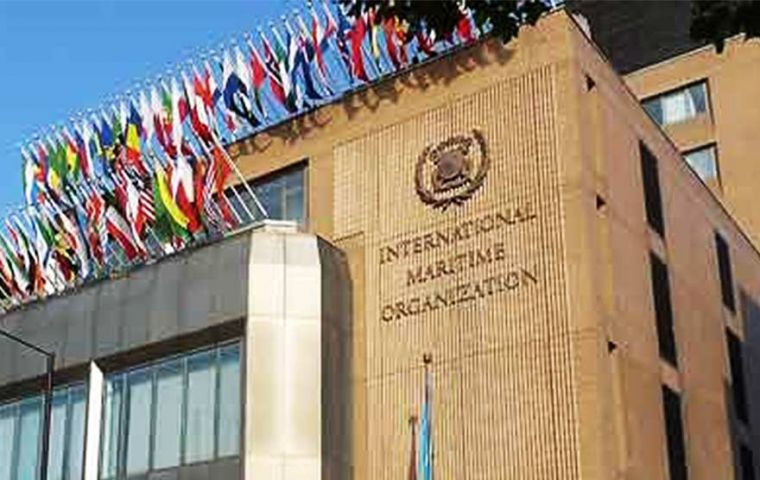MercoPress. South Atlantic News Agency
IMO agrees to cut greenhouse gas emissions from international shipping by mid century
 The deal was reached as a five-day meeting attended by representatives from 100 countries ended at the IMO's headquarters in London
The deal was reached as a five-day meeting attended by representatives from 100 countries ended at the IMO's headquarters in London The International Maritime Organization, IMO on Friday sealed a deal that sets ambitious emissions-cutting targets. IMO agreed to cut total annual emissions of greenhouse gases “by at least 20%, striving for 30% by 2030” and “by at least 70%, striving for 80%, by 2040.”
The goals go well beyond a 2008 plan that targeted a 50% reduction by mid-century.
The agency called the deal “historic,” adding that it “remains committed to reducing greenhouse gas emissions from international shipping and, as a matter of urgency, aims to phase them out as soon as possible.”
The shipping industry contributes 3% of global greenhouse gas emissions, according to the UN, roughly the same as aviation. Most of the world's 100,000 cargo ships are still powered by highly polluting diesel.
The deal was reached as a five-day meeting attended by representatives from 100 countries ended at the IMO's headquarters in London. On Monday, climate protesters calling for yet more ambitious targets demonstrated outside the building while the meeting was in session.
The IMO's targets are revised every five years.
However experts calculate that the industry must cut emissions by 45% by 2030 and reach net zero by 2050 to meet the Paris Agreement goal of a maximal 1.5 C (2.7 F) rise in the average global temperature compared with the pre-industrial era.
For this reason, environmentalists and some nations are unhappy with the deal, saying that it neither sets 2050 as a firm deadline for net zero emissions nor fulfills the goal set out in the Paris accord.
John Maggs, president of the Clean Shipping Coalition NGO, said far more would have been possible.
Calling the deal a “wish and a prayer agreement,” he said that “the level of ambition agreed is far short of what is needed to be sure of keeping global heating below 1.5 Celsius, and the language seemingly contrived to be vague and non-committal.”
Climate-vulnerable Pacific nations were in favor of more ambitious targets, but they faced opposition from big exporters such as China.





Top Comments
Disclaimer & comment rulesCommenting for this story is now closed.
If you have a Facebook account, become a fan and comment on our Facebook Page!